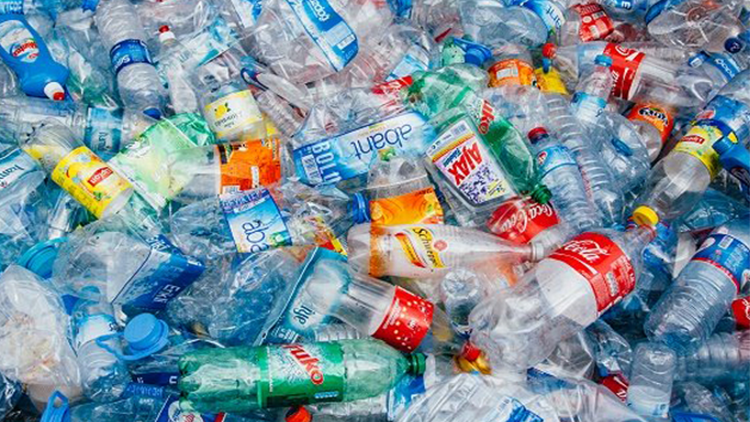Plastic production is expected to triple by 2060 and investors need to be factoring the risks of the sector into their investment decisions, Planet Tracker has said.
Earlier this week, representatives from 180 nations coming together in Paris took the first steps towards a legally binding treaty to regulate plastic, described as the most important green deal since the Paris Agreement in 2015. And in May, 185 investment firms representing $10trn in assets signed a joint statement calling on companies to do more to tackle plastic waste.
See also: – $10trn investor coalition piles pressure on companies to address plastic crisis
But despite these efforts, Planet Tracker says investors’ perception of risk in the plastic industry itself has reached its lowest point since 2011.
In a recent report, Plastic RISK: Measuring risk in the plastic sector, Planet Tracker analysed the equity risk premium, or the excess return that investors receive versus a risk-free rate, of 150 corporates throughout the plastic value chain. The report said in 2023 investors see plastic as less risky than other comparable materials, such as construction materials, paper and forest products, metals and mining, and chemicals.
Plastic production is predicted to triple by 2060, doubling its existing emissions of 1.8 billion tonnes CO2e annually, Planet Tracker said, meaning investors will be even more exposed to risk from the sector.
This includes, the report said, reputation risk and litigation. Over the past decade, 731 plastic pollution policies have been introduced worldwide, with more significant regulatory burdens extremely likely to follow for high plastic polluters. Corporate liabilities from plastics litigation between 2022 and 2030 are forecast to rise above $20bn and beyond by 2030.
“By ignoring tightening regulation, rising litigation exposure and reputational risks, the investment environment appears at odds with reality,” said Thalia Bofiliou, senior investment analyst at Planet Tracker.
“While rising demand for plastics may make the industry appear attractive, investors need to decide whether their forecasted returns adequately account for the risks. Planet Tracker calls on investors, lenders and insurers to factor in these risks in the pricing of plastic-related financial instruments.”
Tom Cummins, disputes partner at global law firm Ashurst agreed increased attention is being paid to the legal risks associated with the production, and use, of plastics.
“Litigation in relation to plastics may take different forms – at one end of the spectrum you have tort law claims seeking damages for environmental or public health related harms. At the other end of the spectrum, companies may face litigation arising from what they have said about their use of plastics – to consumers or investors. Like climate-inspired greenwashing claims, these types of claims arise from allegations that what companies are saying about an aspect of their businesses is different to what they are actually doing,” he said.
“The enacting of laws and regulations in relation to plastics, and other environmental issues, will also encourage claims.”








